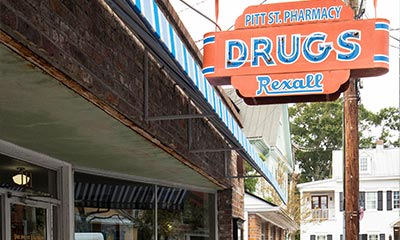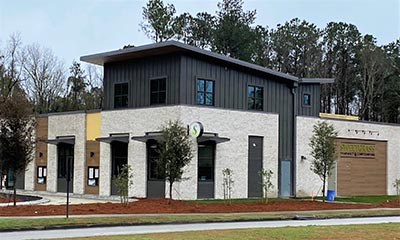
You may have heard the term compounding before, but unless you’ve been prescribed compounded medication, you are probably unfamiliar with its methodology and benefits.

Brandi Sherbert, a pharmacist with Pitt Street Pharmacy, which offers compounding services, explained that the process involves taking pure powders of various chemicals and mixing them into a variety of unique dosage forms, including creams, capsules, lollipops and lip gloss sticks. The method can be utilized in a situation where a patient needs a specific dose that isn’t traditionally available on the drug market.
Sweetgrass Pharmacy and Compounding Owner and Pharmacist Cynthia Feldman likes using the analogy of a shoe when describing compounding — “not all shoe sizes fit every person.” The same concept is true for medicine with respect to dosage amounts and strengths. There may be only five, 10 and 20 milligram doses of a medication available when you need 12, for example. Compounding allows pharmacists to custom fit any strength to match someone’s unique needs, she said. Or a patient may require five medications combined into one dose.

Compounding is often used in pediatrics to develop a tablet into a small, precise dose more suitable for a child. Compounding can also be employed to mix individual ingredients together for a personalized dermatological treatment of eczema, mentioned Sherbert. “The benefits are 100% customization,” she said. “Tailored to what you specifically need.”
Another appeal is in absorption, said Feldman, or the medicine delivery method. A medication may only be available orally, but perhaps you prefer applying it topically or through an eyedrop because of difficulty swallowing pills. Compounding pharmacies can also flavor oral medications to improve the taste, since antibiotics can be bitter, noted Sherbert. Additionally, they can make an allergen-free medication for a person allergic to dairy or gluten.
There are veterinary uses too, including formulating medicines that taste like beef or chicken to please your pet’s palate. Pitt Street Pharmacy compounds veterinary medications for cats and dogs but also for birds, snakes, horses and more. Some cats or dogs may be taking multiple medications, and they can merge them into one pill to reduce stress on both pet and owner. “It makes life easier,” explained Sherbert, who is also a dog owner.
Before the rise of big drug manufacturers in the 1950s and 60s, compounding was the only method pharmacists used, tailoring medications to individual patients, explained Feldman. This approach has experienced a resurgence as more people see the benefits of customized medicines. Of course, compounded medications still require a prescription. “Anything we compound has to be prescribed from a licensed physician,” Sherbert pointed out.
When selecting a compounding pharmacy, Feldman emphasized the importance of understanding that “not all compounding pharmacies are the same” and some are unaccredited. State boards of pharmacy oversee compounding pharmacies, not the FDA. In South Carolina, that regulating body is DHEC. DHEC stipulates certain requirements for compounding, including having a special room for combining ingredients and specific training. Feldman advised researching pharmacies certified through the Pharmacy Compounding Accreditation Board (PCAB), a compounding specific voluntary accreditation program that requires “adherence to rigorous safety standards.”
Pitt Street Pharmacy has a full lab where they store their chemicals and combine ingredients, and masks, gloves and hair nets are worn to keep the areas clean and maintain employee safety. They are part of the Professional Compounding Centers of America (PCCA), a highly accredited organization providing resources and support to compounding pharmacies.
Sherbert called compounding pharmacies a great resource for people to explore the variety of options available. “We can play the middleman between the physician and the patient,” she said.

Leave a Reply